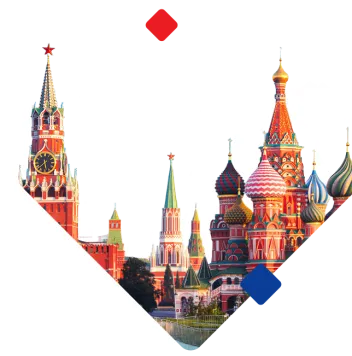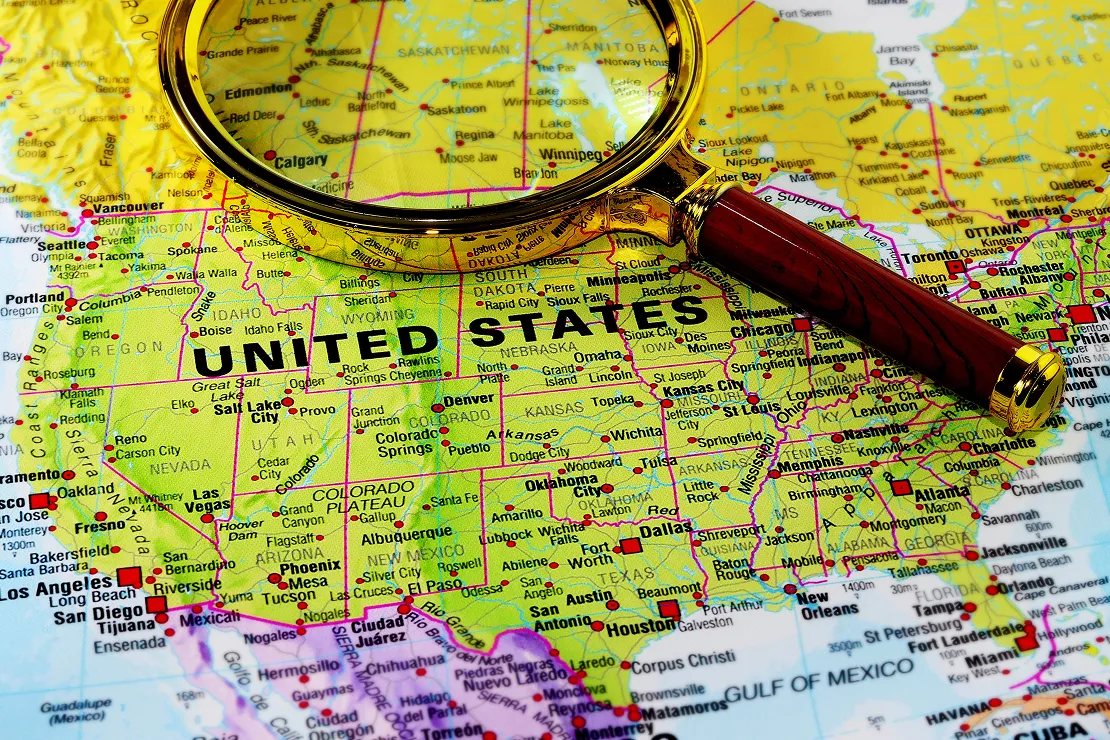Presidential Decree No. 872 of November 22, 2023, introduced the new concept of a “repatriate” in Russia In 2024. According to this decree, our compatriots residing in the United States who have obtained residency or citizenship there can apply to return to Russia and acquire Russian citizenship
Who can repatriate from the USA to Russia?
The following individuals are eligible for repatriation from the USA to Russia:
- Citizens who previously voluntarily renounced their Russian citizenship;
- People residing in the USA as of February 24, 2022;
- Individuals with direct-line relatives who lived or were born in the RSFSR, or in the USSR/Russian Empire within the current borders of the Russian Federation;
- Former USSR citizens who were born or lived in the RSFSR.
Family members are also eligible for repatriation, including spouses, children, parents, grandparents, minor grandchildren, and legally incapacitated or underage siblings.
Holding the status of a participant in the State Resettlement Program allows one to acquire Russian citizenship through a simplified process. Repatriates are not required to prove Russian language proficiency. They can choose any region of Russia as their place of residence, including those not participating in the state program (such as Moscow or Saint Petersburg).
Why do U.S. citizens move to Russia?
In recent years, there has been a noticeable increase in interest among U.S. citizens in relocating to Russia. The reasons are varied — economic factors, cultural interests, and more.
Economic Opportunities: Despite the difference in living standards, many Americans see Russia as offering personal and professional development. Fast-growing sectors like IT, agriculture, and high-tech industries create a demand for skilled professionals. Entrepreneurs benefit from access to the Eurasian Economic Union market, making Russia attractive for business.
Cultural and Spiritual Heritage: Russia is known for its rich culture, deep traditions, and strong sense of community. For descendants of Russian emigrants, this move is not only a return to ancestral lands but also an opportunity to reconnect with family history.
Political and Social Stability: Amid global crises and social instability, Russia is seen as a country with a clear course for development and a stable social policy. Many are drawn to the emphasis on traditional values now central to the state’s policies.
New Opportunities for Families: For American families seeking affordable education and healthcare, Russia offers favorable conditions. Free education and a public health care system are decisive factors when choosing a country to settle in.

Support Programs and Benefits for Repatriates
The state program operates indefinitely. It does not require repatriates to reside for three years in the selected settlement region. However, repatriates are not eligible for the support measures available to compatriots under the general resettlement category.
The benefits available to repatriates include:
- Simplified acquisition of Russian citizenship without needing a temporary or permanent residence;
- Reimbursement of visa and legal status application costs;
- Duty-free import of personal belongings and one vehicle or motorcycle;
- The ability to choose any region of the Russian Federation as the place of permanent residence;
- No requirement to pass a comprehensive exam if the repatriate holds an educational document issued in Russia or the USSR;
- Employment without needing special work permits;
- Access to social services — healthcare, education, job assistance, and more.
In the Kaliningrad region, repatriates receive an additional 32,000 rubles per person and can be reimbursed up to 135,000 rubles for adaptation expenses. Under the ‘Far Eastern Hectare’ program, individuals can receive a free land plot for housing or business use.
The Process of repatriation from the USA
The repatriation of compatriots living in the United States to Russia follows this process:
- Gather documents, fill out an application for the state program, and submit them to a Russian consulate in the USA (Washington, Houston, or New York).
- The consul carefully verifies the information and issues a positive decision if there are no errors or inaccuracies.
- Wait for the issuance of the participant certificate (60–90 days). It will list the participant and family members intending to receive citizenship. The certificate is valid for 5 years, after which it becomes invalid.
- Apply for a visa and move to Russia. Repatriates can claim customs exemption for importing property. Vehicles brought from the U.S. must have been owned by the applicant for at least 12 months prior. The vehicle may be shipped separately, up to 1.5 years after the participant’s arrival. One car, motorcycle, or trailer can be brought under preferential rules.
- At the border, fill out a migration card indicating the purpose of visit as ‘private’. Bring passports, the migration card, and the participation certificate (or copy, if family members arrive separately).
- After arriving in Russia, the participant and their family must visit a local office of the Ministry of Internal Affairs to get a stamp in the certificate.
- Within 30 days of arrival, there are 7 days allowed to register for migration purposes, then apply for SNILS and TIN, and complete a medical check-up within 90 days.
- Apply for Russian citizenship with the Ministry of Internal Affairs. The decision process takes up to 3 months. All participants must complete fingerprinting and photographing. Then, receive a decision on citizenship.
- Take the oath and proceed with obtaining a Russian passport, health insurance policy, and military registration if applicable.
List of Required Documents for Repatriation
Package of documents to be prepared by the participant of the state program:
- Completed application form;
- National and foreign passports of the American citizen and their family members returning to Russia;
- Birth certificates;
- Marriage or divorce certificate;
- Diplomas and educational certificates;
- Documents confirming professional qualifications, work experience, academic degrees and titles;
- Two photos, size 3.5 x 4.5 cm;
- A document confirming the basis for repatriate status;
- Documents confirming the presence of a direct ascendant relative who lived in the RSFSR or territories that are now within Russia’s borders and had Russian or USSR citizenship.
If original documents are not available, archival extracts may be provided. All original documents must be accompanied by copies. If the documents are in English or another foreign language, they must be apostilled, translated into Russian, and notarized.
Advantages of Repatriation from the USA to Russia
The repatriation program approved by Presidential Decree No. 872 is an important development in Russia’s migration policy. It not only strengthens ties with compatriots abroad but also attracts qualified specialists ready to contribute to Russia’s growth.
For those considering relocation, the program offers a unique combination of social support, economic opportunity, and cultural richness, making Russia an increasingly attractive place to live.
Many modern Americans see in Russia the ‘West’ they aspired to but lost. In many cases, the country receives highly qualified professionals who positively influence the national economy and development of resettlement regions.
Specifically, U.S. repatriates may benefit from:
- Support for small and medium-sized businesses through consultations, grants, tax incentives, concessional loans, and more;
- Low cost of living with a relatively high standard of living;
- Cultural proximity;
- Lower income tax rates for individuals and businesses compared to the U.S.;
- Developed infrastructure: good roads, highways, railways, airports, and efficient public transport;
- Free healthcare services under the OMS system;
- Abundant parks, schools, kindergartens, and other public amenities.
